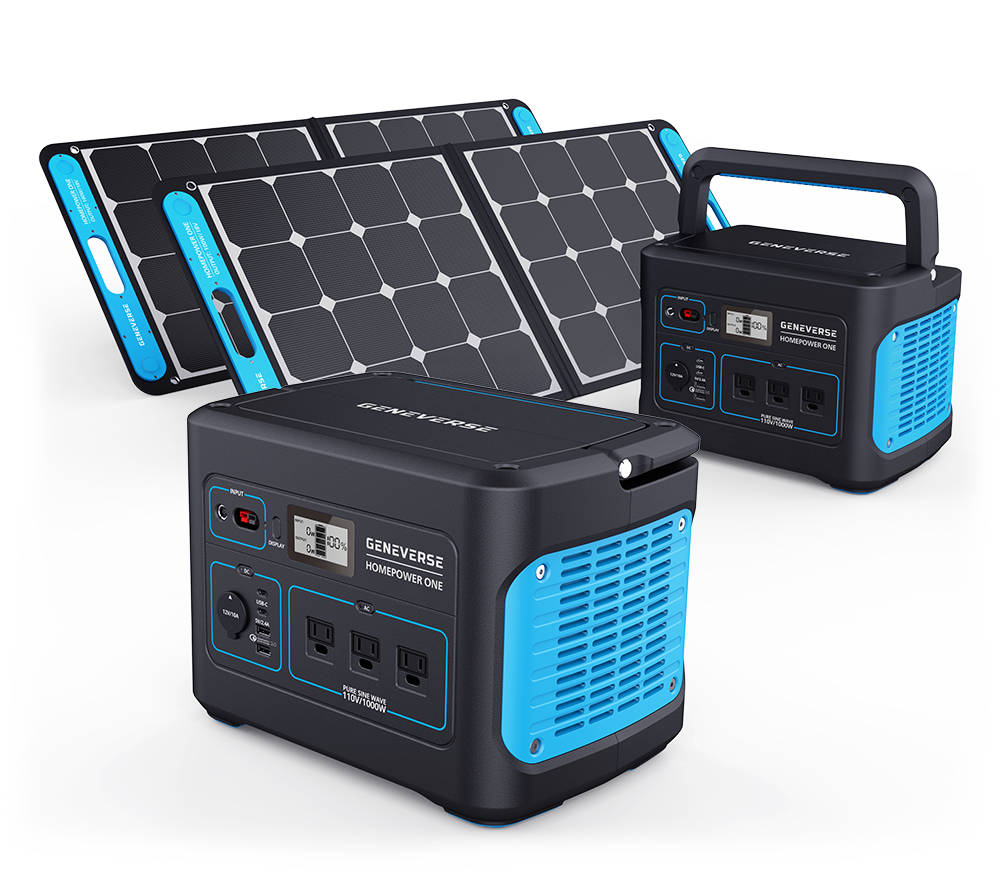As tax season gets underway and the April 2024 deadline approaches, you might be wondering if your state offers any solar incentives beyond the federal ITC tax credit.

Below, Geneverse provides more information about state solar tax incentives for the final twelve states in the last blog of our series covering all of the United States. This blog covers Rhode Island through Wyoming. Read on for more information about state solar tax incentives for each state.
Rhode Island
Rhode Island’s solar incentives are nothing to sneeze at. New solar owners in Rhode Island can take advantage of per-watt grants offered through installation companies. Rhode Island also waives sales and property tax associated with solar equipment.
South Carolina
Solar owners in South Carolina can get a 25% tax credit on solar power system installation costs. The maximum credit is $3,500 or 50% of your state tax liability for up to 10 years – whichever ends up being less. Energy companies, solar manufacturers and solar installers also offer rebates and incentives as well.
South Dakota
South Dakota offers a Renewable Energy System Exemption, which is a property tax exemption when installing solar panels or battery storage systems 5 megawatts in size or less. This exemption reduces those taxes for the first $50,000 or 70% of the overall solar system value – whichever ends up being greater. Some solar manufacturers also offer their own solar rebates. Programs offered by manufacturers are typically time sensitive.
Tennessee
In addition to the Federal Solar Tax Credit, Tennessee residents can take advantage of Tennessee’s Green Energy Property Tax Assessment and the Sales Tax Credit for Clean Energy Technology. State sales tax is currently at 7%, so homeowners with solar can save with these tax exemptions.

Texas
Certain utility companies offer incentives that make solar installation more cost-effective in the Lone Star State. For instance, qualifying Texas residents who are eligible for the American Electric Power SMART Source Solar PV Program can earn a rebate of up to $3,000. Texas also has a Property Tax Exemption for Solar Panels that helps homeowners with solar see a faster return on their energy investment.
Utah
Utah offers the Renewable Energy Systems Tax Credit which applies to residential solar installations and other renewable technologies. However, residential solar PV systems that are installed in 2024 and beyond are no longer eligible for this state tax credit. Utah does have a net metering program that helps homeowners with solar earn credit for excess energy.
Vermont
Vermont offers a sales tax and property tax exemption as an incentive for homeowners converting to solar. Energy storage systems can also take advantage of net metering as well as local programs such as GMP’s BYOD program for a one-time rebate.
Virginia
Virginia has a Solar Sales Tax Exemption that allows residents to deduct 20% of the sales tax paid on solar equipment from taxable income. The Solar Sales Tax Exemption is capped at $500. Virginia also offers a property tax exemption that helps homeowners with solar save on overall cost.
Washington
Washington offers a sales tax exemption for the purchase of any solar energy system machinery, equipment, or installation. This sales tax exemption is available through 2029. Washington also offers local incentives such as Chelan County’s Sustainable Natural Alternative Power Program, which aims to make solar more viable for the masses.
West Virginia
West Virginia does not have any state specific incentives in place currently. West Virginia does offer net metering that allows customers to receive credit for excess energy sent back to the grid.
Wisconsin
Wisconsin residents can take advantage of property and sales tax exemptions in addition to the federal ITC. Wisconsin also has net metering and the Focus on Energy Program, which rewards Wisconsin homeowners making the switch to solar with a cash rebate – customers in more populated areas can receive up to $500, while customers in remote locations can receive up to $1,000.
Wyoming
Wyoming has net metering but does not have any state specific tax credits currently. Wyoming does offer local programs such as Rocky Mountain Power’s Wattsmart Battery program. Customers enrolled in this program receive $600 in rebates per kilowatt (kW) when it comes to batteries for existing solar energy systems installed before 9/1/2021.
Geneverse PowerPillar ESS – Power for Good!

All this talk about savings is the perfect opportunity to talk about the Geneverse PowerPillar ESS, the most cost-efficient energy storage system available on the market. We can help you store and spend your energy how you see fit, increase your self-reliance, and boost your eco-friendliness profile – all while saving you money with fewer components and easier installation than our competitors.
Get in touch with Geneverse today to learn more about how we can help put you on the path to true energy independence.
About Geneverse: Geneverse is the most reliable and cost-efficient source for solar energy. Our PowerPillar ESS integrates solar power, battery storage, not to mention grid and generator power sources that help our customers get the most out of their energy storage investment – all at the most competitive pricing on the market. We craft complete home energy systems that power energy independence rain or shine in addition to portable solar products that provide decentralized power during emergencies and unforeseen circumstances. Learn more about Geneverse and how we can bring protection and security to your family/household by visiting our website today.




Leave a comment (all fields required)